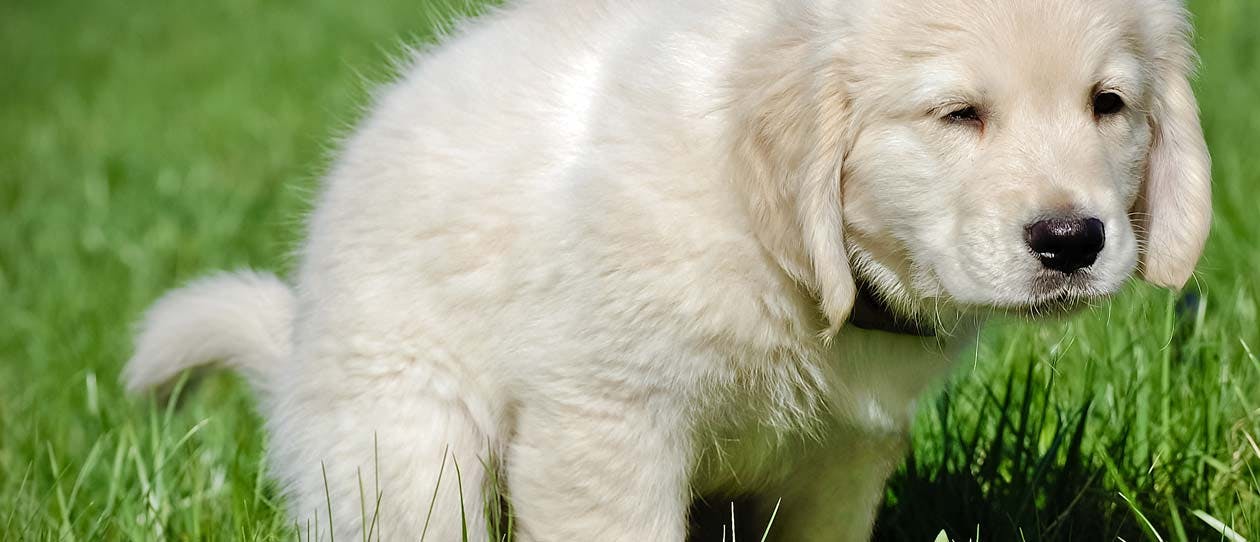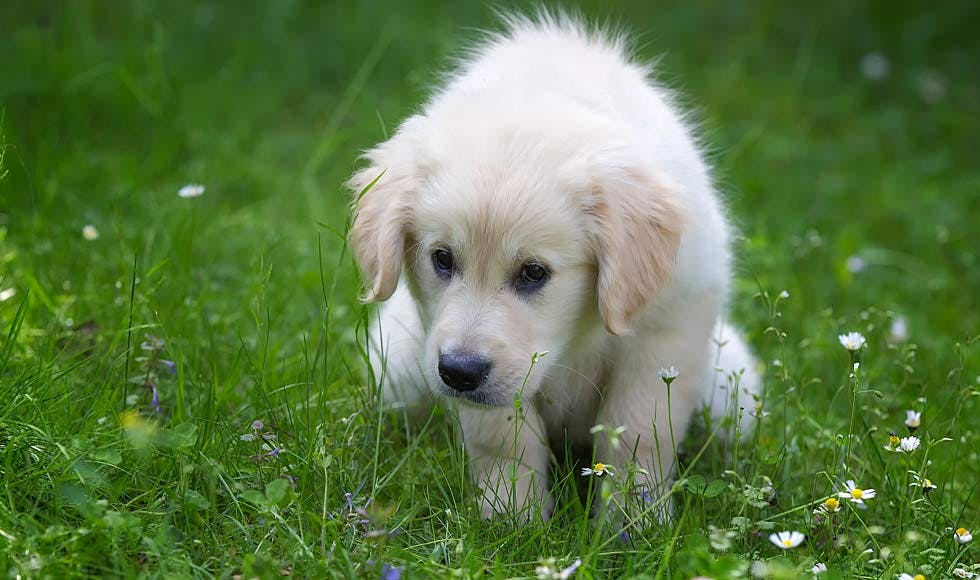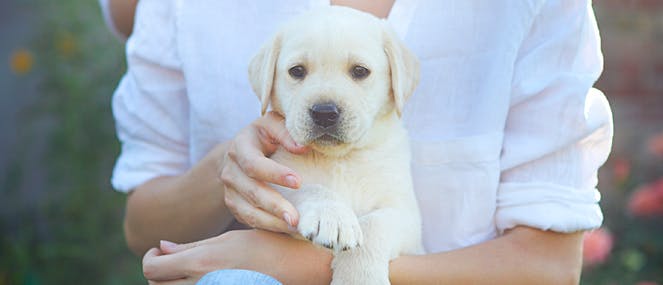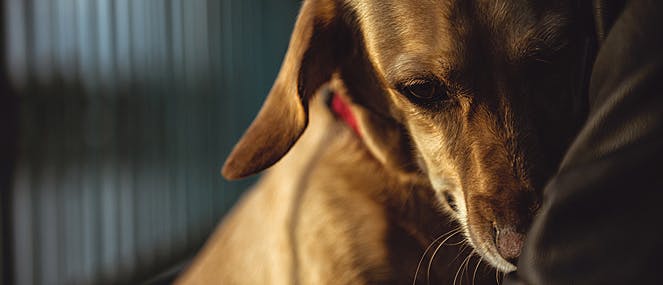
- A Guide To Perfect Your Pet's Health/
- Manage Your Dog's Digestive Health/
- What is dog constipation?


Constipation is one of the more common digestive problems for all animals, including canines, and basically means a difficulty – or inability, to have a normal bowel movement. As with other animals, constipation can happen at any age, regardless of lifestyle or breed. Left untreated, it can cause lethargy, vomiting, and loss of appetite – which in turn creates further health problems. That said, it does occur in most dogs at one time or another, and fortunately most cases can be treated quite easily.
What are the signs of constipation in a dog?
If you’re not sure if your dog is constipated, there are things to watch for aside from a lack of pooping (they should defecate at least every two days.) They may ‘scoot’ to try and relieve pain around the anal area, visibly strain or whimper when going to the toilet. You may find even when they do try, they are unsuccessful at producing anything. Alternatively, you may notice changes to their poo – it may become very pebble-like, dried or hard. Sometimes there is grass or other debris in the faeces.
You pooch may lose their appetite or become lethargic and depressed. Physically, they may vomit as a means of relieving the pressure or may experience abdominal bloating.
Causes of constipation in dogs
Dehydration, lack of exercise or a poor diet (especially a lack of fibre in the diet) are common causes of constipation, though there are many others, including:
- Ingested dirt, grass, hair (from self-grooming) or other debris
- Blocked or abscessed anal sacks, or tumours or masses around the anus
- Enlarged prostate gland
- Kidney disease – your vet may test your dog’s hydration and electrolyte balance if they are suspicious of kidney disease
- Some medications
- Blockages in the digestive tract caused by ingestion of small, hard objects such as rocks, bones and kids’ toys – dogs that are fond of search and destroy missions of household items are prime candidates.
How can I help my constipated dog?
Depending on the cause, there are a variety of ways to treat (and prevent further bouts of) constipation.
If your dog’s constipation is likely to be linked to diet, exercise, or lack of water intake, this is the best place to start. First of all, ensure they are eating a quality dog food, and give their gut health a head start with a quality probiotic designed for pooches. You may also want to try adding extra fibre to their diet – such as pumpkin or psyllium husks (alongside providing extra water to help digestion.)
You can add a small amount (half a teaspoon for small dogs, two teaspoons for large dogs) of olive or coconut oil to their food to help with mild constipation, but be careful in dogs who need a low-fat diet.
Lack of exercise is another predisposing factor to pay attention to. If they are resisting walkies, this can again be a sign of other underlying health problems, including arthritis. Visit your vet and take in a diary of their activities such as a change in exercise, diet or demeanour as this will help narrow down the cause of the constipation.
If your at-home efforts result in no…well, poo, it’s time to go to the vet as soon as possible. They may conduct a physical examination of your dog, a blood chemical profile and blood count, electrolyte analysis and urinalysis. If they suspect impaction, X-rays and ultrasounds may be used to see how severe it is and can help reveal intestinal blockages.
As well as diagnosing the cause, the vet is best equipped to advise you on appropriate treatment, which may include administering a laxative or stool softener or enema. And of course, they will advise on other treatments necessary if an underlying disease process is identified as the cause.
Treating obstipation
Chronic constipation may be referred to as obstipation, which can be harder to treat. Serious constipation can cause the colon to fill with large amounts of compacted, hard faecal matter meaning your dog will be unable to empty their bowels and will be very uncomfortable. Your vet may give your pet an enema to clear the blockage and may put them on IV fluids to help hydrate them. Severe cases may require your vet to thoroughly clean the colon under general anaesthetic.
Preventing constipation in pooches
Regular exercise, a fibre filled, balanced diet and plenty of water are all key players in prevention. Regular vet checks can also help identify any health conditions that may increase the risk of constipation, allowing a tailored approach to preventing this condition in your dog.
Further reading: What your dog's poop tells you




